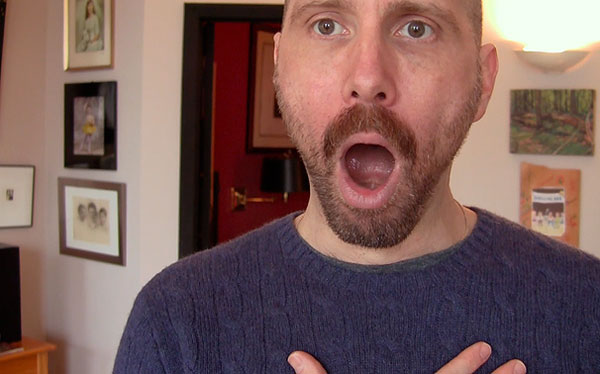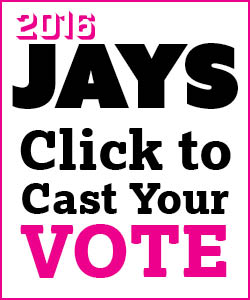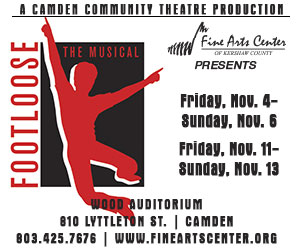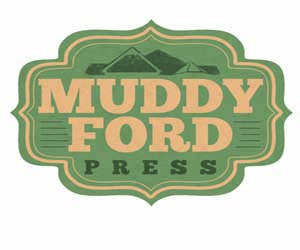
Photo Courtesy of ThinkThorpe
by: Wade Sellers and Jake Margle
Writer and filmmaker David Thorpe’s feature documentary Do I Sound Gay? has been gaining steam since its screening at the Toronto Film Festival. A graduate of Irmo High School and now living and working in New York City, Thorpe has put together an entertaining and poignant film about cultural perceptions and stereotypes. Enlisting the help of recognizable names in the gay community (i.e. Dan Savage), close friends, family, and interviews with random people on streets from Paris to New York, Thorpe examines people thoughts on the male gay voice, a subject born from insecurities about his own. Jasper sat down to talk with Thorpe before his film begins its run at The Nickelodeon on September 10th.
Jasper: How did the initial concept for the film begin?
DT: I really had this lightning bolt moment, where I realized that the voices of my own community were really alienating me and persecuting me. It was flash point for alienation that I was feeling at the time about being gay, you know? It made me wonder, why are some gay men the way they are, why do we all talk like this? Is it something society forced on us or is it who we really are? Even scarier or more strange was wondering about myself and, “did I sound like this?” I think I knew, I kind of did at times. So I wondered, why did I sound like this? Why didn’t I like it? It was just this hurricane of emotion about my voice. And this emotion about my voice all came in the form of questions about voice and I think there’s a perfectly good reason for that, which is that, for a lot of gay men our voices are our “tell.” We feel like it is what, for lack of a better phrase, gives us away.
Jasper: You are a writer, correct?
DT: I was a journalist doing mainly lifestyle journalism but also a fair amount of gay-related journalism. Then I was a communications director for five years prior to making the film, at a large AIDS organization in New York City. That’s where I was able to do a lot of creative activism in trying to get media attention and political attention around AIDS issues which had kind of fallen off the map. In many ways, it prepared me to work out this story about my voice. Because in a lot of ways I think the film is a form of creative, funny activism around a serious topic.
Jasper: Had you ever approached filmmaking before?
DT: Yeah, I had dabbled in film for sure. You know even in Do I Sound Gay?, you see clips from a public access show that I did with friends, in which I put in way too much time and energy. So, I knew that I loved film, but I had such a love for writing that it wasn’t the fullest idea that came to mind. I was gonna write a book about the gay voice, but the deeper I went into it the more I realized that it would only make sense to [make a film].
Jasper: How long was the filmmaking process?
DT: It was sort of between 4 and 5 years depending on where you start and depending on what you call the end.
Jasper: Did you kind of have a loose outline of what you were trying to achieve?
DT: Oh God no. We did not have an outline or a plan. The project kind of unspooled in a really kind of organic way over the years. You know, from just sort of a topic that I felt I needed to explore to just kind of shooting and exploring ideas, to kind of the trailer. It all kind of organically layered on top of itself as more people heard about the project and there seemed to be deeper and deeper interest in seeing it made. Which includes everything from my investors, to the Kickstarter which had like 2,000 individual backers and raised $120,000. I would never have dreamed that in the beginning. that I was going make a feature independent doc-film that was going to have a national profile in the media and with critics. I think it’s much better that I didn’t know that going into it because it might have been too scary. I might have been more calculating than I should have. The project was really kind of a genuine expression of a first-time filmmaker.
Jasper: Was there a point when you were making the film that you realized that a lot of people were reacting in an electric way?
DT: Yeah, I mean very early on I saw the power of the question alone, “do I sound gay?” Because 10 out 10 people that I would talk to about the stereotype of the gay voice suddenly would light up and tell me what they thought it was, or that they had always wondered what it was, or they talked about their own voices, gay and non-gay people alike, so I always knew that the topic was very resonant with people, and that was very exciting and among the reasons I felt compelled to keep going. We did many, many rough-cut screenings over the course of a year and, you know, we did our homework, and we knew from those screenings a lot of people were finding the film very thought-provoking and compelling regardless of whether or not they were gay.
Jasper: What were some of your friend’s reactions when you first told them about making the film?
DT: (laughs) Well I think my friends and family were taken back. I think they were really surprised to hear that I didn’t like my voice, that I still had issues about being gay or sounding gay. And, you know, it was something I had never spoken about with them, but, you know, certainly my gay friends, as taken back as they might have been by the idea of going to a voice coach. All of them right away knew exactly what I was feeling in terms of internalized homophobia, and shame, and my self-consciousness. There was always, I think, a lot of empathy from gay people. And, you know, at the beginning of this I really didn’t know how gay audiences would react, and I was fearful that I would be criticized for airing dirty laundry, for talking about shame. Instead, it seemed like, by and large and overwhelmingly, gay audiences find the film a useful way of opening up that conversation. That being gay or being a minority or frankly, being an individual is, for a lot of people, definitely a challenge. That sometimes we’re better at being another.
Jasper: One of the strongest moments in your film is meeting the young man who was being beat up in class for the sound of his voice.
DT: I read about the assault online. It made national news and headlines around the country as a lot of these vicious attacks do. What I kept reading in interviews was that his voice always played a role in his getting bullied, and that really jumped out at me. So I reached out to him. I spent a day with them and got to know them. And I have stayed in touch with them, last I heard from his mom is that he’s doing well. I think a lot of people found that scene very touching and very telling about how dangerous it can be to make yourself visible or, in this case, audible, as gay or feminine.
Jasper: Did your point of view, or focus, change as you got deeper into making the film?
DT: I kind of understood how I got from A to B but maybe not how I got from A to B to C to D to E to F to G and so forth. I always knew my sense of where we would end up once I had done all the shooting and actually lived the experience of the journey. But I think there was so much more between A and Z that I didn’t clearly know or understand and that’s what the film is, is all that stuff in the middle.
Jasper: Having a wide positive response like this, does it validate any of the questions you were asking when you began making the film?
DT: Yeah, this was always a very personal project that I was going to complete regardless of the form that took. Whether it was watching it in my living room or sort of a large feature film. I was gonna do it no matter what. But it is gravy, it is the cherry on top when it turned out that what I wanted to do and say and explore resonated with so many people. And it does give you confidence you know, like, “Hey maybe what I have to say is something a lot of other people would be interested in hearing.”
Jasper: How do you find this message resonating with the people and the groups and communities that it’s been playing in?
DT: With every Q&A that I’ve done, and I’ve done a lot at this point, there are always a lot of questions for me but there are always a lot of people who share stories from their own lives: gay people, women, people of color. And they talk about their own perceived flaws and how they have or haven’t gotten past them. One of the most ratifying things for me is that the film seems to prompt people to think about themselves and maybe embrace perceived flaws or have a sense of, “Hey! Everybody has insecurities,” and you can reach out to family and you can reach out to friends and try to grow and move forward.
—-
Do I Sound Gay? runs at The Nickelodeon from September 11th through September 17th. Director David Thorpe will be present and participate in a live talk back after the September 13th screening.






.jpg)